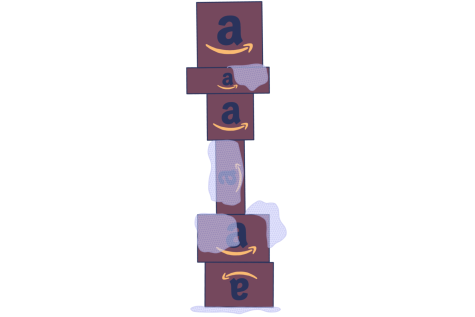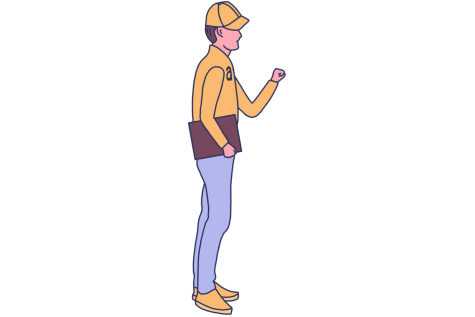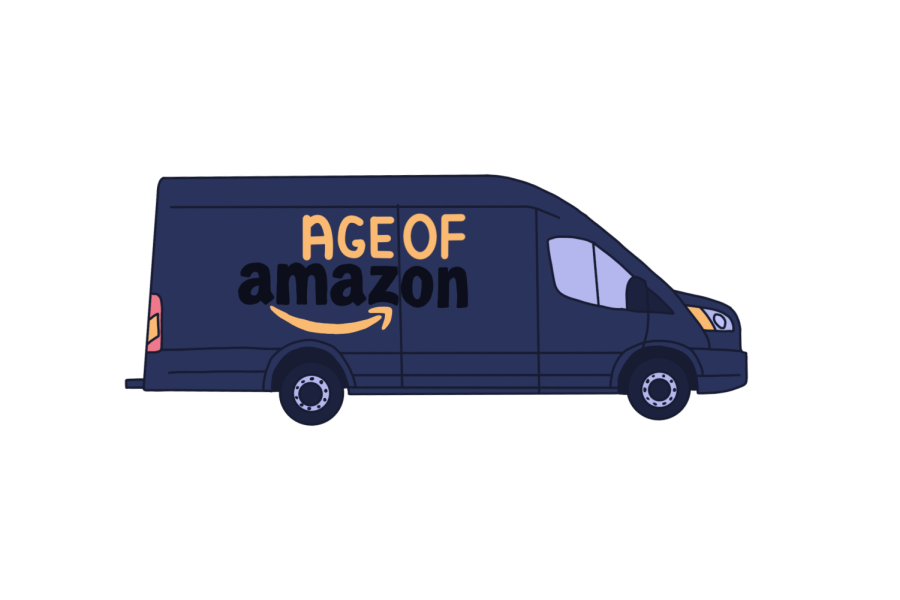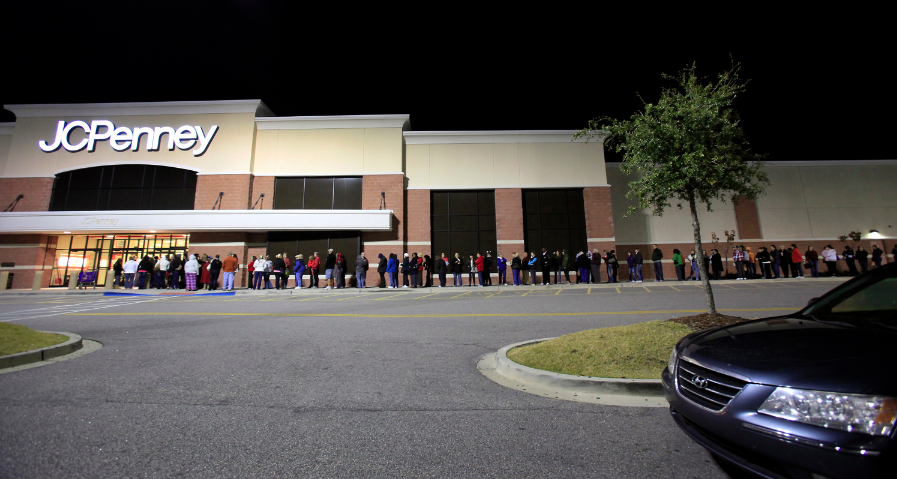Age of Amazon
Amazon is dominating the retail industry, and is causing malls and small businesses to struggle.
*Opinion
Where would you go if you desperately needed a tool to separate your egg white from the yolk? For most of us, the answer is simple: Amazon – with free delivery for Prime members – the egg-separating crisis can be instantly avoided. Amazon is the peak of human development and convenience. The one-stop-shop for every essential (and nonessential) item in our lives. But when the solution to our consumer cravings is always Amazon, what effect does this have on the competition?
Online shopping is on the rise, which has made going to the mall less of an enjoyable pastime and more like a chore. With online retailers like Amazon so readily available, people have 24/7 access to a virtual “mall” on their phones. Because of this, 25% of U.S. malls are expected to shut down within the next five years (CNBC).
“Why go to the mall when you can order things from [the comfort of] your home?” Ellen Asher, Macy’s sales associate at West County Mall, said. “Online shopping saves so much time and you have access to [countless] options.”
However, the convenience that comes with Amazon has turned malls into ghost towns. Seeing the places where I used to spend countless hours close one after another is heart-wrenching. Neo Lopez, Macy’s assistant manager at West County Mall, said even department stores like Macy’s are taking a hit because of Amazon. According to USA Today, Macy’s plans on closing 20% of its locations within the next three years.
“The Macy’s at West County and Galleria have been doing well, since we have a loyal community that comes in [frequently],” Lopez said. “But other department stores all over St. Louis are struggling.”
And department stores are not the only ones affected. Support for local businesses has been steadily decreasing as well. According to CNBC, only 30% of Americans shopped at local businesses in 2020, a 14% decrease since 2018. The effects of the COVID-19 pandemic, coupled with Amazon’s growth, have caused malls and businesses to fail faster than ever before. Samantha Noda, Sammysoap’s manager in downtown Kirkwood, said customers have been a lot fewer.
“As a small business, it’s really hard to compete with Amazon,” Noda said. “[Our business] relies on people coming in and walking through the front door, which is difficult since it’s easier to shop from home.”
When we support small businesses, our money goes toward improving our community and helping the local economy. But when we buy from Amazon, our money serves to skyrocket billionaire Jeff Bezos into space.
“Everyone has the option to shop on Amazon,” Noda said. “So when they come to our store, they are making a conscious decision to support our business.”
When ordering online, the human element of shopping is eliminated. In-person, there is full transparency about the product you are buying. What you see is what you get. Online is a whole different story.
“I think it’s better to shop in-person,” Lopez said. “When you’re ordering online, it’s harder to tell what size [clothes] will fit you, what looks good on you and the [quality of the product]. If it doesn’t suit [your needs], you have to return it, and it just becomes a hassle.”

So, those jeans you’ve been meaning to buy? Go ahead, purchase them from Amazon. You’ll have to wait a couple days for it to be delivered, will find it on your front porch swathed in plastic, and when you finally try them on, you’ll probably end up returning them because they’re the wrong size. But hey, at least you won’t have to step out of your home or use your car. That’s better for both you and the environment, right? Think again. According to the Washington Post, Amazon generated a whopping 599 million pounds of plastic packaging waste in 2020. The amount of waste entering the world’s waterways and seas is equivalent to a delivery van full of plastic dumping its contents into the oceans every 67 minutes. Shocked? I mean, what did you think all that precious bubble wrap was made of?
Amazon doesn’t only add to plastic waste, but it delivers goods in trucks, which also have high carbon emissions. Amazon is striving toward net-zero carbon emissions by 2040, but that isn’t soon enough.

Not only is Amazon taking over the retail industry, but it has stepped into the food service business as well. Its partnership with Whole Foods has allowed it to expand, diversify and create multiple food brands that deliver meals and groceries. So, groceries running out? You’re in luck. Take your pick from Amazon Kitchen, Wickedly Prime, Happy Belly, Solimo, Belei or 365 Everyday Value, all of which are Amazon grocery brands that deliver to your door.
“Having food delivered to your home can be good for people [in the short term], but it can also be negative because it shows how Amazon is starting to expand [into other industries], and how rapidly it is growing,” Angelina Casey, sophomore, said. “Being able to get [your] food delivered hurts [local] restaurants and can cause people to stop buying from [them].”
I don’t know about you, but I’m deleting Amazon. Because I’ve realized it’s time to go to the mall, help my community and that there are more things to see than the four walls of my bedroom.
Your donation will support the student journalists of Kirkwood High School. Your contribution will allow us to purchase equipment and cover our annual website hosting costs.

She/Her
Hobbies and Interests: tennis, reading, traveling, shopping and writing
Favorite movie: Top Gun: Maverick
Favorite Quote: "Happiness...

he/them
Hobbies and Interests: I love reading, drawing, hanging out with friends, playing with my dogs, listening to music
Favorite Song: “World's...











Bob • Apr 29, 2022 at 3:39 pm
Amazing Read Mashallah